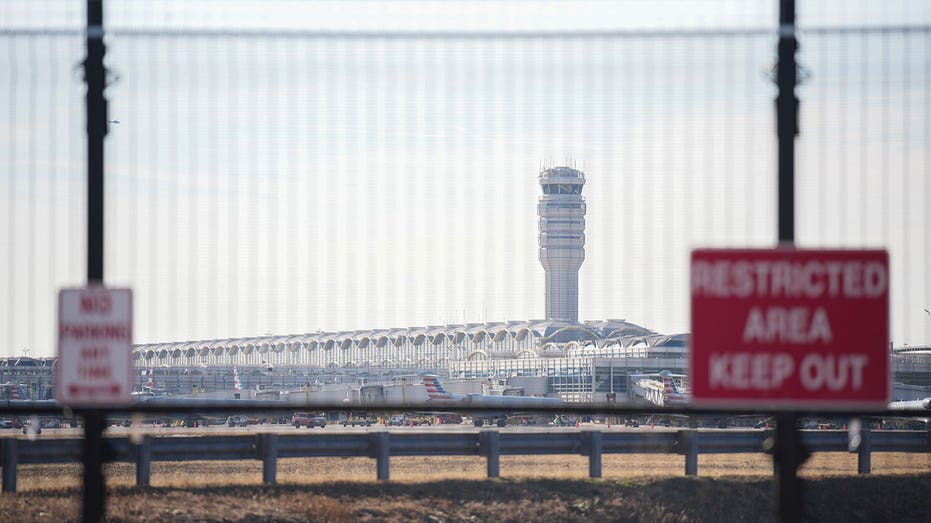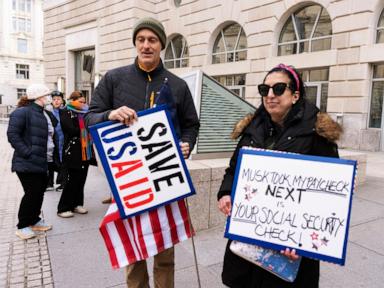


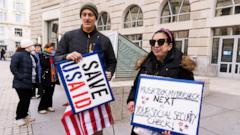
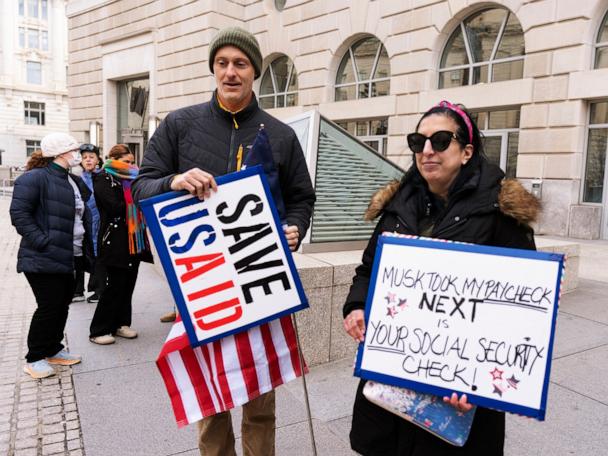

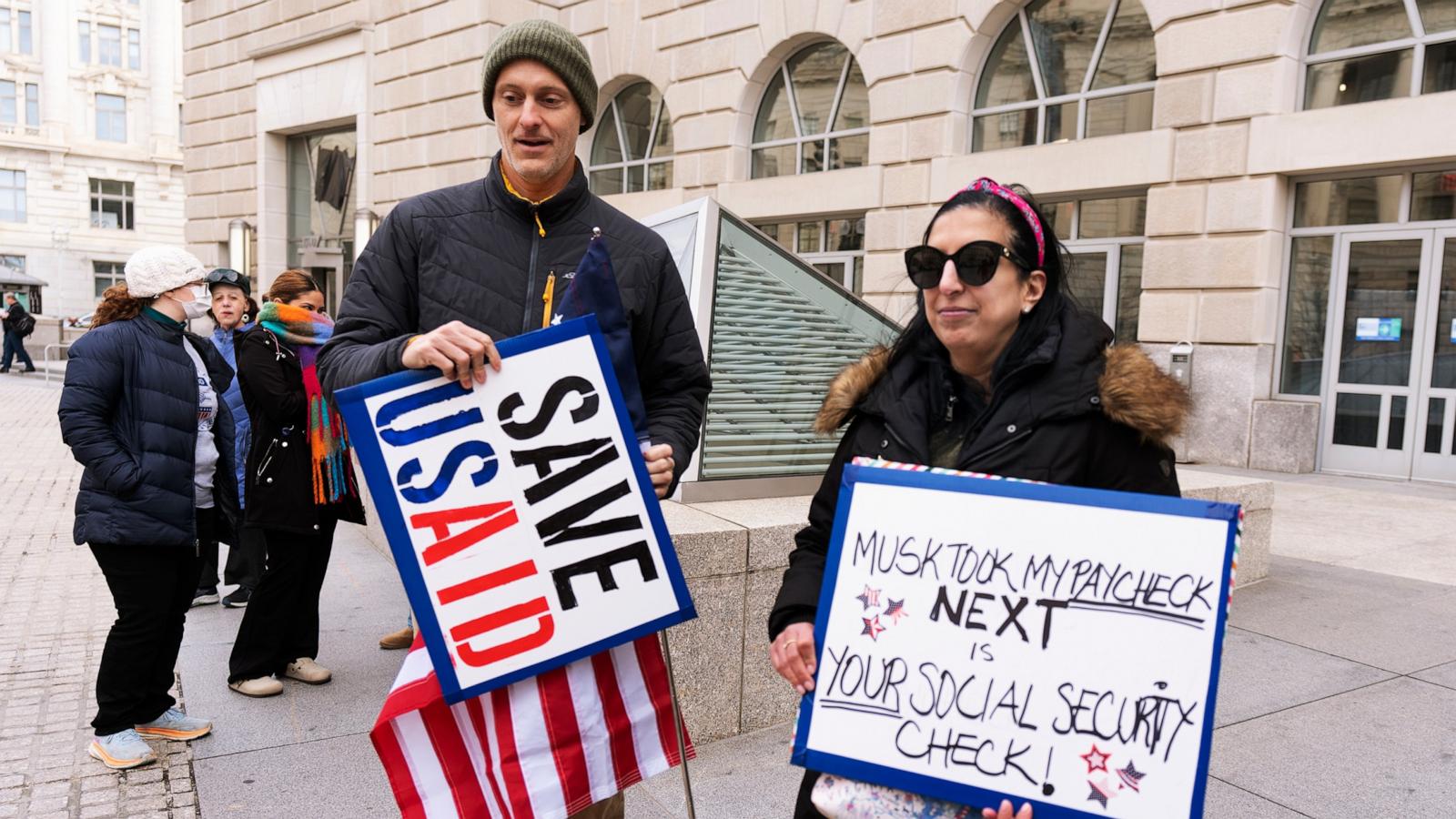
A top official with the U.S. Agency for International Development acknowledged that “changes” in the agency’s payment system had left some foreign service officers without “certain allowance payments” in recent weeks as the Trump administration has sought to dismantle the aid organization, according to a sworn declaration filed Friday in federal court.
Peter Marocco, a Trump loyalist and the architect of efforts to slash USAID as part of President Donald Trump’s massive federal cuts, wrote in his eight-page affidavit that the agency is “working diligently to address these delays,” which he said included “routine payments to employees” stationed overseas. The agency has placed several employees on temporary paid leave, including some deployed in high-risk countries.
“Although these delays could continue to impact certain payments to employees in the immediate future, an employee’s leave status would not itself impact the timing or eligibility for such payments,” Marocco said.
Marocco did not specify how many government workers have been impacted, nor did he describe what actions had precipitated the delays, except to call them “changes in the process by which payments can be made and approved by the Agency over the past weeks.”
Aid organizations have also reported having difficulty accessing funds dispersed through the agency’s payment system, called Phoenix, though it was not clear from Marocco’s affidavit whether those issues were related.
Marocco penned the affidavit as part of a lawsuit brought by a union that represents government employees who are challenging the staffing cuts to USAID being made by the administration and its new Department of Government Efficiency. Plaintiffs in the case include foreign service officers who described their harrowing escape from the Democratic Republic of the Congo in recent weeks amid protests tearing through the country.
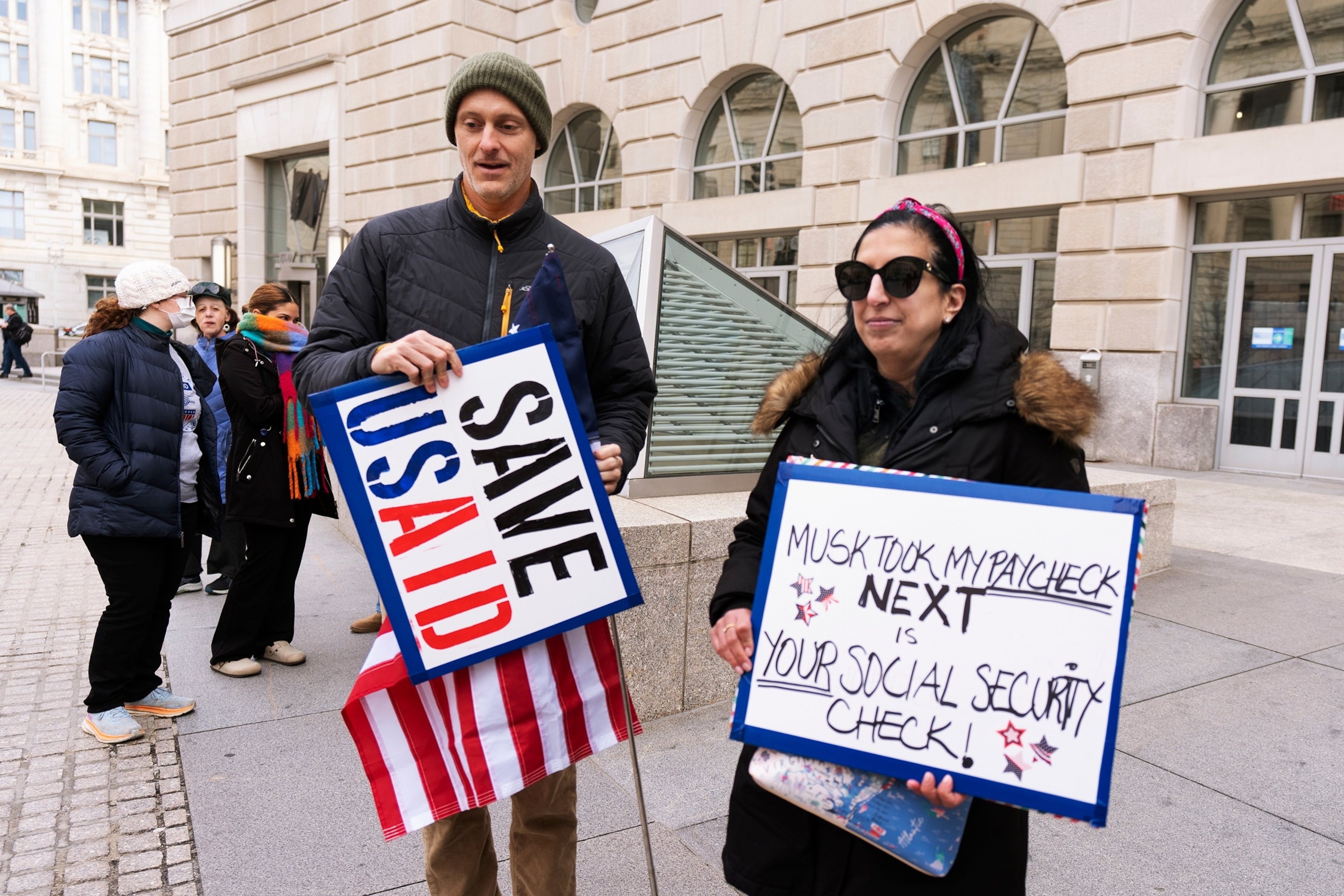
USAID contract worker Priya Kathpal, right, and Taylor Williamson, who works for a company doing contract work for USAID, carry signs outside the USAID headquarters in Washington, Feb. 10, 2025.
Manuel Balce Ceneta/AP
One such official, identified in the court record only as Olivia Doe, said she and her family were evacuated from Kinchasa by speedboat in the middle of the night only “with what could fit on our laps,” calling the experience “traumatizing” for her two small children who “witnessed the violence on the streets.”
“Three days later, we finally arrived back to winter in DC with no warm clothes, a place to stay, or a school for the kids to go to,” Doe wrote. “We arrived to the news that DOGE and the Trump Administration were calling us ‘criminals’ — something particularly hard to stomach after the ordeal we had just survived.”
Doe added that she feared losing her evacuation allowance “due to the whims of DOGE and the Trump Administration,” saying it would be “completely unfair and inhumane to cut USAID evacuees off from the special evacuation allowance after many of us served for years in what is one of the poorest countries in the world.”
Marocco responded to some of those concerns in his affidavit on Friday, claiming that the administration’s communication with employees being evacuated “was clear, consistent, and without disruption,” and that those who left the Congo “were welcomed by a USAID landing team at Dulles Airport in Dulles, Virginia, and were provided a host of necessities and care packages upon their arrival to the United States.”

